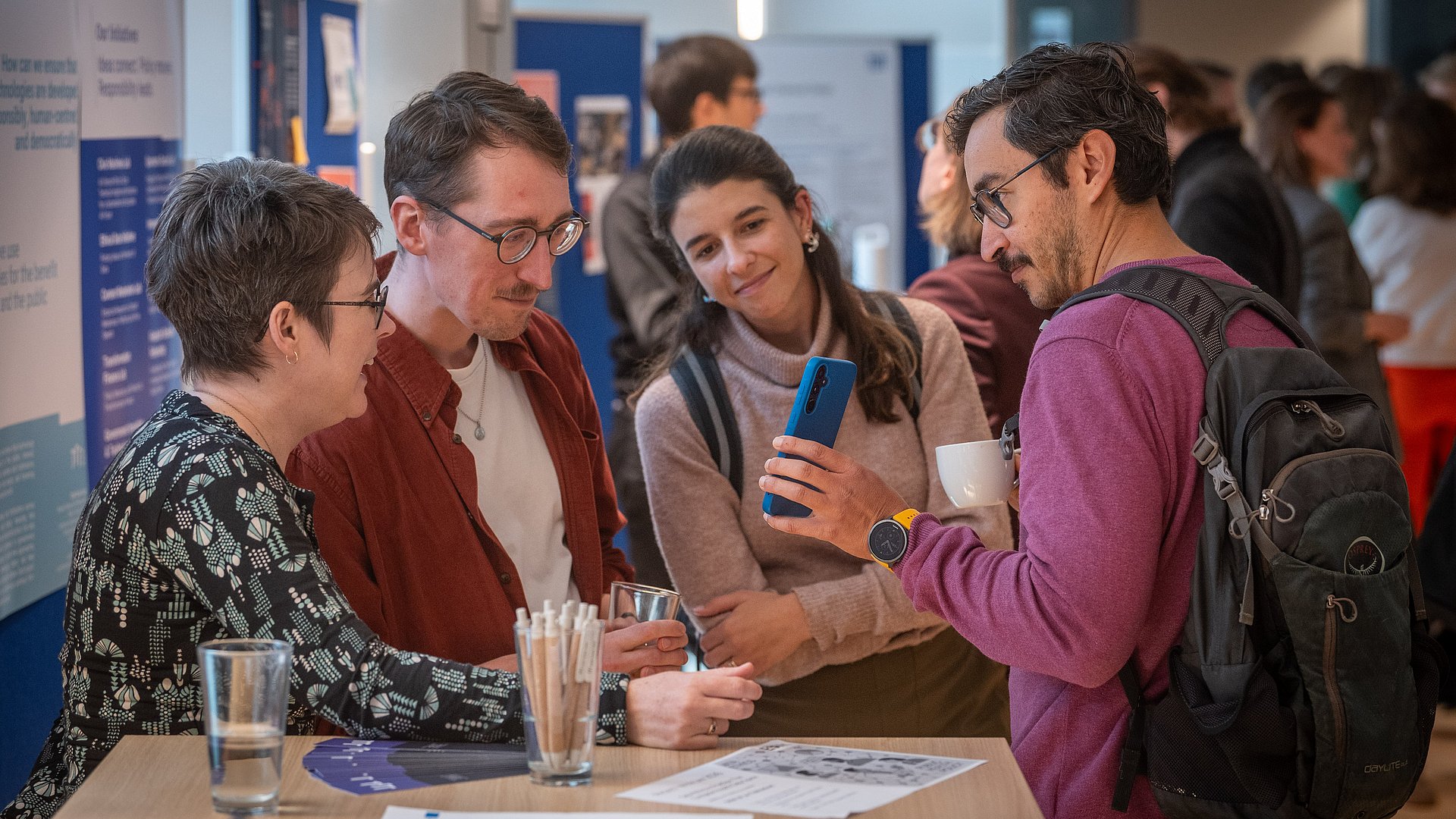The Technical University of Munich (TUM) has founded the TUM Public Science Lab, which will involve people from all areas of society in research. It will thus incorporate previously unconsidered perspectives and expertise. In this way, the lab aims to identify issues that have a decisive influence on coexistence and to point out ways for public decision-making processes and sustainable innovations.
 Andreas Heddergott / TUM
Andreas Heddergott / TUM How can research distinguish highly relevant societal problems from less important issues? How can people who have never had contact with a university contribute their knowledge and perspectives? How can science become so public that it contributes to successful coexistence?
The new Public Science Lab at TUM aims to answer these questions. "Our goal is not to find quick solutions," says Sabina Leonelli , Professor of Philosophy and History of Science and Technology. "We want to ask who decides how a problem is described and what knowledge is used to solve it. If the goal is to improve people's lives, who decides what constitutes an improvement? For example, if we look at the shortage of care workers and claim that robots are the solution, have we already narrowed the frame of reference and overlooked the problems of living together?"
Building trust
To achieve these goals, the TUM Public Science Lab aims to create as broad a knowledge base as possible. "This can only be achieved if we expand the perspectives of different parts of society with the knowledge we have gathered in the academic world," says Jörg Niewöhner , Professor of Anthropology of Science and Technology. The public is therefore involved in all projects from the outset.
On the one hand, the lab will work with organized stakeholders such as associations or local interest groups in order to draw on their expertise and, conversely, to provide assistance in public decision-making processes with scientific findings. On the other hand, the lab wants to enable people who previously could not imagine participating in research to do so.
"This can't be done overnight," emphasizes Niewöhner. "First, we want to build trust by establishing a permanent presence in Munich. We will visit associations, schools and neighborhood organizations. Through dialogue and hands-on activities, we want to make research more accessible and identify problems that may not yet be on anyone's radar. Only in the second step we will consider which topics to address and which methods to use - and then we will count on the participation of the people who have gotten to know us beforehand." The researchers also want to try out new approaches and alternative ways of engaging with science by collaborating with artists.
Ecology and sustainable urban development
The first focus of the TUM Public Science Lab is on topics related to ecology and sustainable urban development. "Discussions on these topics quickly become scientific and technical," says Anne Rademacher , Professor of Sustainable Urban Environments. "However, the crucial question is often how we want to live together. For example, when it comes to future water shortages and who in a region can use water for what, we can calculate this using scientific models. But this will not lead to a good result unless people have first clarified among themselves how their different needs - the fountain in the market square, agriculture, the pool in the garden - should be weighed against each other."
TUM Public Science Lab in the video
Display external content
At this point content of an external provider (source: www.xyz.de) is integrated. When displaying, data may be transferred to third parties or cookies may be stored, therefore your consent is required.
You can find more information and the possibility to revoke your consent at www.tum.de/datenschutz .
I agree
TUM expands public engagement
The TUM Public Science Lab is based in the Department of Science, Technology and Society at the TUM School of Social Sciences and Technology. It complements the new TransforM Cluster of Excellence , which explores new ways of shaping the interaction between high-tech innovations and societal change. The lab will work closely with the TUM Think Tank , which brings together science, civil society, politics and business to jointly develop solutions to pressing problems. TUM as a whole is currently expanding its public engagement.
"We are focusing our university on the idea that society and science are not separate sectors," says Prof. Thomas F. Hofmann, President of TUM. "Recognizing and involving people in all their diversity is a prerequisite for developing innovations that bring added value to society as a whole. This collaborative approach is particularly important in times when massive attempts are being made to pit science and other parts of society against each other with disinformation and mistrust."






